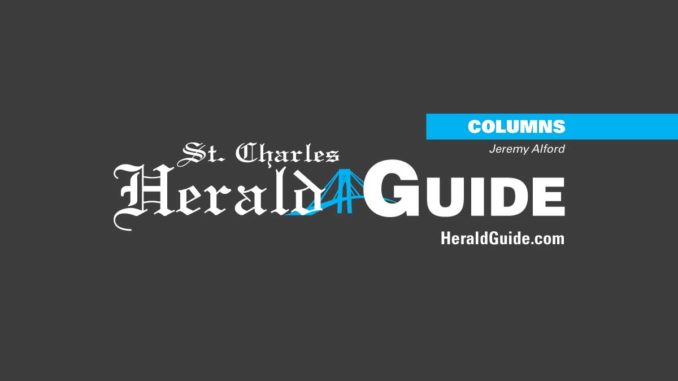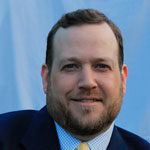
Policymakers have yet to express interest in health care study
BATON ROUGE — Aside from opinion polls and talk radio rhetoric, there are strong indicators that people are growing weary waiting the government to reform Louisiana’s health care system. Just consider that public and private foundations are expected to pour approximately $2 million over the next year into the Public Affairs Research Council to fund a comprehensive health care study and research position.
The first briefing from the long-term study was issued last month and a former high-ranking state official was tapped to take on the research role. It has been nearly a month since this information was released and school associations, business lobbyists and industry groups are still putting out positive reviews backing PAR’s recommendations.
Yet others seem hell-bent on ignoring the effort, opting instead to wait on a modern miracle of sorts to solve the dilemma. More specifically, the Legislature has yet to take an interest in the undertaking, said Jim Brandt, president of PAR, a policy nonprofit that monitors state government.
“We have had no response from lawmakers, which is unfortunate,” Brandt said. “They aren’t interested in talking about this. We thought we would have heard something by now.”
Gov. Kathleen Blanco and other state officials did work together to host the Governor’s Healthcare Summit two years ago to garner ideas, one of which was the formation of the Governor’s Healthcare Forum. As a result, regional hearings have been held all over the state, but tangible results are hard to find.
Meanwhile, PAR already has its first set of recommendations.
The first briefing addresses several issues and reveals a dysfunctional structure that is ripe for reform. On a national level, Louisiana is a high-spending state, but in its study, PAR could not locate a health care area where the money was being used efficiently. And more times than not, sacrifices were made on the backs of patients.
“Louisiana’s health care system is organized to deliver inefficient institutional care at the expense of primary and preventive care,” Brandt said. “Spending priorities in the health budget are focused on institutions and providers, rather than patients.”
The study concludes that Louisiana lacks the infrastructure to provide its citizens, especially the uninsured population, with basic health care services and makes a few recommendations:
Transfer certain emergency room visits to a doctor’s office or clinic, saving around $300 per case. If one-half of all non-emergency ER visits were diverted in this fashion, the state would save $40 million annually.
Establish an initial investment of $50 million in state or federal grant money to help develop new health centers and clinics around the state, specifically in the hurricane-ravaged areas.
To assist with the extraordinary expenses related to treating Medicaid patients, the state should bankroll $36 million over three years to phase in a major Medicaid fee increase for primary care physicians and other physicians in short supply. The bottom-line result could be more people seeing more doctors.
Restore medical care to rural parishes and other underserved areas by providing incentives for primary care physicians to practice there. This would require an initial investment of $25 million in state or federal grant money.
Relax practice requirements for non-physician clinicians or mid-level practitioners to enable them to practice independently in some cases.
Provide no-interest loans to physicians in the Greater New Orleans region to assist them in re-establishing their medical practices.
The recommendations are stiff, but they have caught the eyes and ears of the Louisiana Association of Business and Industry, one the state’s most influential lobbies. In particular, CEO Dan Juneau noted that the state’s archaic Charity Hospital delivery system model was experiencing a steep decline in patients in the years leading up to the storms.
At the same time, private hospitals were seeing a large influx of uninsured patients streaming into their emergency rooms for basic care.
“Like a volcano belching ash and shaking the earth with tremors, our illogical system of government-focused healthcare has given strong indications of an impending disaster for a long time,” Juneau said. “PAR makes a strong case that the time to act is now-and the reforms needed are very apparent.”
A recommendation to double the enrollment in school-based health centers has also caught the attention of the Louisiana Assembly on School-Based Health Care. The group recently put out a press release urging the state to consider PAR’s $10 million recommendation to develop more school-based health centers.
“The PAR Report gets it exactly right in terms of school-based health,” said Angie Ruiz, LASBHC president. “School-based health is a cost effective way to deliver quality health care to youth. They’re a captured audience at a school, so they are more likely to actually get the physical or come in for the immunizations they need.”
The entire PAR briefing was prepared by David Hood, the former secretary of the Louisiana Department of Health and Hospitals. Hood was hired as PAR’s senior health care policy analyst earlier this year thanks in part to a lead gift of $200,000 from the Franciscan Missionaries of our Lady.
PAR’s ongoing capital campaign will also fund other health care briefings in the coming year, such as the challenge of providing for the uninsured; long-term care for the elderly and disabled; and state Medicaid spending. Those helping to fund the effort thus far include the Baton Rouge Area Foundation, Community Foundation of Shreveport-Bossier, Ella West Freeman Foundation, Keller Family Foundation and the RosaMary Foundation.
Brandt said there will likely be another eight to 10 briefings issued in the series, with the second one arriving later this month. It is hard to predict much else, he added, especially since the effort is based on the charity of others.
Still, though, it is better than waiting on the results of another government forum.
“That’s probably why we have been able to make an impact and bring something to the discussion immediately,” he said.


Be the first to comment